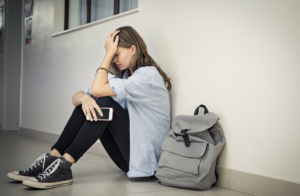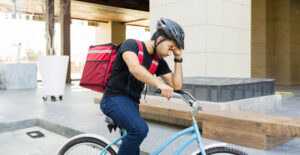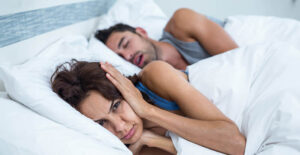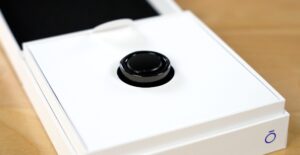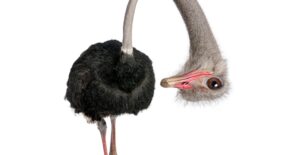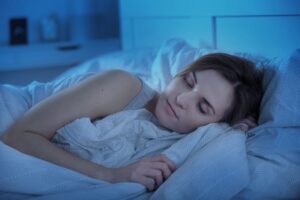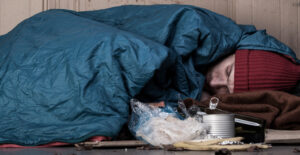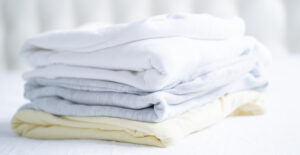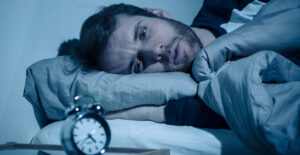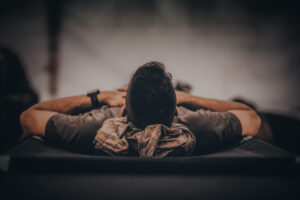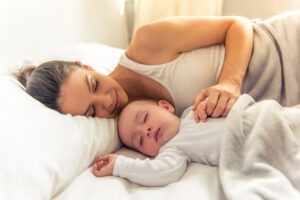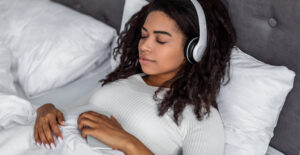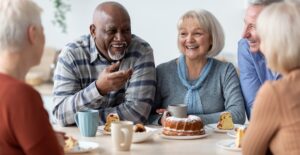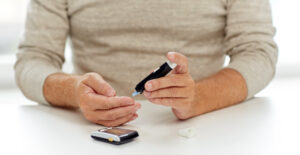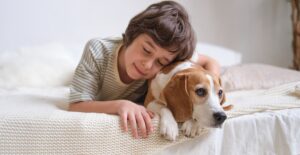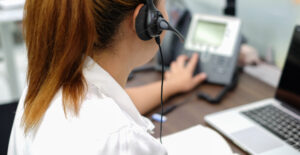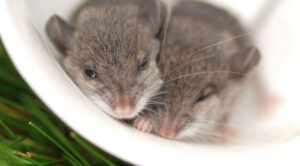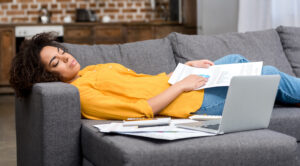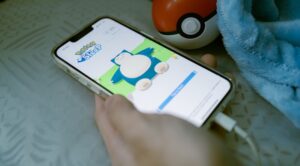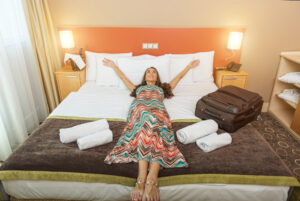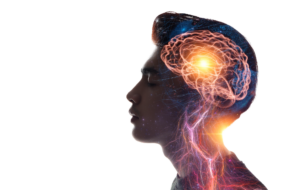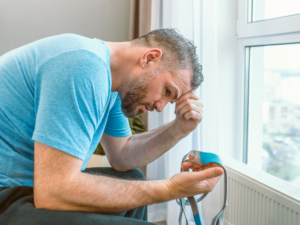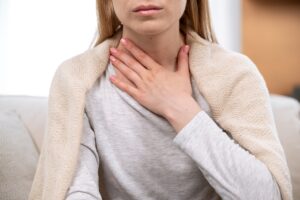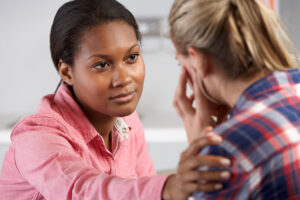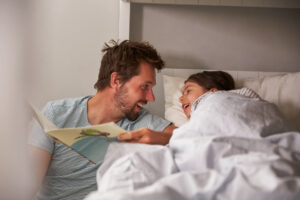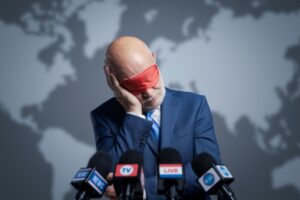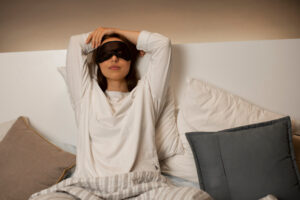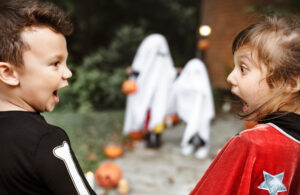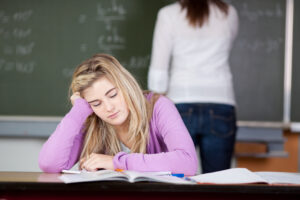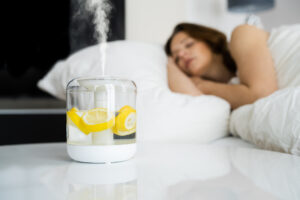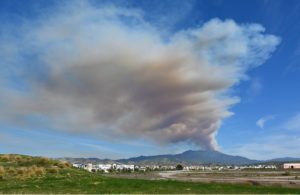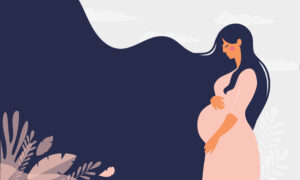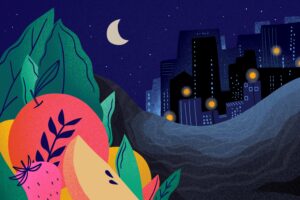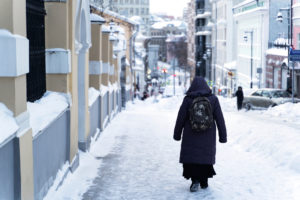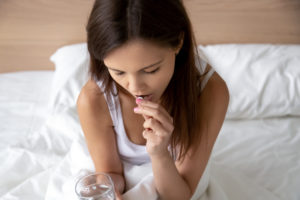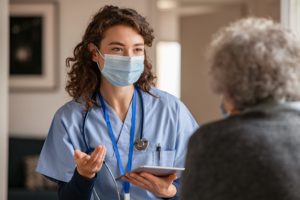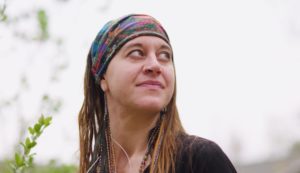It Ain’t the Turkey: We Lose 11 Minutes of Sleep on Thanksgiving
- Among major holidays, Thanksgiving is when we think we get the most sleep, according to survey respondents.
- U.S. adults lose an average of 11 minutes and 14 seconds of sleep every Thanksgiving, according to a survey. Stress and anxiety were the most popular reason for losing sleep, according to respondents (34.7%).
- People who host Thanksgiving lose 51 minutes of sleep over the holiday, on average.
- 52.4% of people who sleep less over Thanksgiving work on Black Friday.
- 14.3% of people who reported sleeping less over Thanksgiving say shopping is a factor.

Thanksgiving is exhausting for Jim Winett, a 57-year-old business consultant who’s hosting Thanksgiving dinner for 14 guests at his Los Angeles home this year.
“It’s not just that day,” Winett says. “It’s everything that goes into bringing everyone together: coordinating, getting the house ready, getting the table ready, figuring out the food, and who’s going to be bringing what.”
Stress around the holidays can be tiring and bad for sleep hygiene in general. But how much are we actually losing during Thanksgiving? and what’s causing it?
According to an October 2022 SleepFoundation.org survey of 1,250 U.S. adults, Thanksgiving is the major holiday in which people say they get the most sleep, with 23.1% reporting as such. But their sleep stats may say something else.
When asked how much sleep they gained or lost over Thanksgiving, compared to the normal day, survey respondents reported losing 11 minutes and 14 seconds. The No. 1 cause of Thanksgiving sleep issues? Not necessarily turkey and tryptophan. Among people who reported sleeping less, stress and anxiety was the top response, (34.7%) followed by family commitments (27.4%).
Got a hot tip? Pitch us your story idea, share your expertise with SleepFoundation.org, or let us know about your sleep experiences right here.
Is it the pressure of hosting a Thanksgiving holiday party, as Winett says, that keeps us up? Traveling? Black Friday? To help us understand more about how we sleep over Thanksgiving, here’s a look at what may be the key factors.
Eat, Drink, Be … Exhausted?
Food may be the place to start. Changing regular eating habits during Thanksgiving, with bigger and often more carbohydrate-heavy meals , can affect our sleep habits.
“People tend to get off their normal routines,” says Dr. Angela Holliday-Bell, a Chicago-based certified sleep specialist, sleep coach, and physician.
“A later bedtime, alcohol, and later meals all have a negative impact on both sleep duration and sleep quality.” — Dr. Alex Dimitriu, Menlo Park Psychiatry & Sleep Medicine
That large mid-day dinner on Thanksgiving can hit us in multiple ways. Among survey respondents who say they sleep more over Thanksgiving, more than half (51.2%) cited overeating and drinking as the reason.
The same meal that’s sleep-inducing for one person can be disrupting for another: 29.4% of survey respondents who lose sleep cited food and drink as the reason, the third most popular response. And 35.2% of people who lose sleep say they imbibe more over the holiday than normal, compared to 28.4% of all respondents.
Those who host also don’t sleep the most. They may actually sleep the least, losing 51 minutes during Thanksgiving compared to their normal amount of sleep. About 36% say they drink more alcohol than normal on Thanksgiving, compared to 28.4% of all respondents. Among hosts, 34.8% say they drink the same or less than normal, compared to 39.1% of all respondents.
“People will stay up late to celebrate, clean up, or just have some much-needed alone time [after] a long day of festivities and socializing,” says Dr. Alex Dimitriu, founder of Menlo Park Psychiatry & Sleep Medicine in Menlo Park, California, and a SleepFoundation.org medical-review board member. “The trouble is that a later bedtime , alcohol, and later meals all have a negative impact on both sleep duration and sleep quality.”
Many people assume they’ll sleep late the next morning, Dr. Dimitriu says, but they don’t.
“We all tend to wake up about the same time as usual no matter when we go to bed,” he says.
Catching up on sleep the day after Thanksgiving might be even tougher when it’s the biggest shopping day of the year.
Black Friday Shopping and Sleep
According to the survey, 73.8% of U.S. adults shop on Black Friday, with 68.1% shopping online and 65% in-person; 33.2% do both. But those working on Black Friday suffer more when it comes to lack of sleep.
People who work on Black Friday comprise about half (52.4%) of survey respondents who say they lose sleep over the Thanksgiving holiday. This group loses an average of 50 minutes of sleep over Thanksgiving compared to normal.

What about the hard-core Black Friday shoppers, those who spend their Thanksgiving night in a line outside a store awaiting bargains inside? People who shop for six hours or more on Black Friday only lose about 18 minutes of sleep, according to the survey. Only 14.3% of people who reported sleeping less over Thanksgiving say shopping is a factor.
Getting up early to snag deals can eat into sleep, however.
Still, getting up early to wait in lines and snag online deals is tiring. Among people who shop on Black Friday, 41.7% say they lose one hour or more of sleep each night. Among people who don’t, only 17.1% say they lose one hour or more of sleep each night.
Does Thanksgiving Travel Tire Us Out?
More than 50 million people traveled Thanksgiving in 2021 , with travel volume inching close to pre-pandemic levels. The jet lag and stress from packed airports and roads could lead to less sleep . But they weren’t the primary reasons, according to the SleepFoundation.org survey.
Overnight travel plans were on the Thanksgiving itinerary for just 16.4% of survey respondents, who reported losing about 20 minutes of sleep over the holiday when they slept in a hotel or a friend or family member’s house. Of overnight travelers who lost sleep, 20.4% cited an uncomfortable sleep environment as the reason, with 17.2% blaming unfamiliar surroundings. Both ranked behind stress and anxiety, at 32.3% for respondents who traveled overnight.
“It can be difficult to rest when you’re not in your own sleep environment, with a temperature you can control and noises you can control,” Dr. Holliday-Bell says.
If you’re among that group and are looking to improve your sleep away from home, she recommends bringing along items that mimic your home environment: a favorite pillow, a light-diffusing sleep mask, noise-blocking headphones, a white noise machine, or even a travel fan to help you stay cool.
“It can be difficult to rest when you’re not in your own sleep environment, with a temperature you can control and noises you can control.” — Dr. Angela Holliday-Bell, certified sleep specialist, sleep coach, and physician
And when you return home, take a moment to recover and fix your sleep schedule.
“Give yourself a day or two to get back into your normal routine, to get back into the swing of things,” Dr. Holliday-Bell says.
How To Prevent Thanksgiving Sleep Loss
Whatever your Thanksgiving sleep story may be, healthy sleep begins with healthy habits.
“Limit large meals and alcohol and get movement and fresh air, especially before sleep,” Dr. Dimitriu says. He also advises staying hydrated and quitting caffeine after noon.
Planning is key for holiday hosts, says Dr. Holliday-Bell, even if it means setting aside time for inevitable chaos. It’s also important to let others know when you’re feeling tired.
“Making other people aware that [sleep is] something that you are prioritizing can be helpful so they can adjust their expectations,” she says. “If everyone’s more rested and has more energy, all those things can make everyone happier.”
Methodology
The survey commissioned by SleepFoundation.org was conducted on the online survey platform Pollfish on Oct. 19, 2022. Results are from 1,250 survey participants in the United States who were 18 years old or older at the time of the survey. All respondents attested to answering the survey questions truthfully and accurately.
References
5 Sources
-
Binks, H., Vincent, G. E., Gupta, C., Irwin, C., & Khalesi, S. (2020). Effects of Diet on Sleep: A Narrative Review. Nutrients., Retrieved Nov. 14, 2022.
https://pubmed.ncbi.nlm.nih.gov/32230944/ -
Caliandro, R., Streng, A. A., van Kerkhof, L., van der Horst, G., & Chaves, I. (2021). Social Jetlag and Related Risks for Human Health: A Timely Review. Nutrients, 13(12), 4543., Retrieved Nov. 14, 2022.
https://pubmed.ncbi.nlm.nih.gov/34960096/ -
Edmonds, E. (2021, November 18). Buckle Up: Thanksgiving Travel to Rebound Almost to Pre-Pandemic Levels. AAA Newsroom., Retrieved Nov. 14, 2022.
https://newsroom.aaa.com/2021/11/buckle-up-aaa-predicts-thanksgiving-travel-to-rebound-almost-to-pre-pandemic-levels/ -
Thanksgiving 2021 Air Travel was No Turkey as Sunday After Holiday Sets New Pandemic Air Travel Record. (n.d.). Bureau of Transportation Statistics., Retrieved Nov. 14, 2022.
https://www.bts.gov/data-spotlight/thanksgiving-2021-air-travel-was-no-turkey-sunday-after-holiday-sets-new-pandemic -
Waterhouse, J., Reilly, T., & Edwards, B. (2004). The stress of travel. Journal of sports sciences, 22(10), 946–966., Retrieved Nov. 14, 2022.
http://www.tandfonline.com/doi/abs/10.1080/02640410400000264


